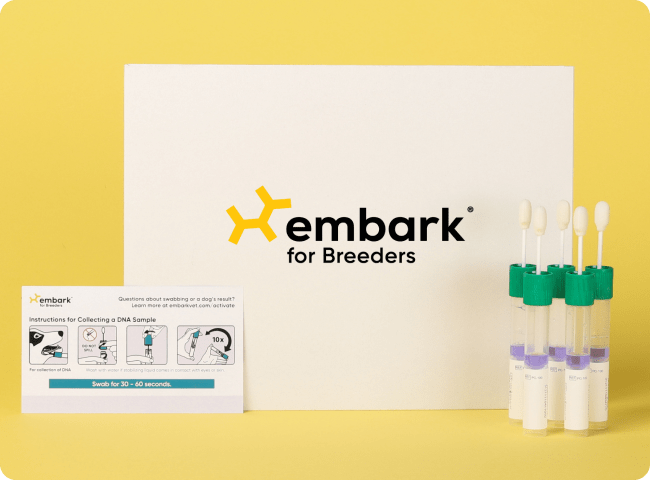Breeding Against Complex Diseases in Dogs
Wed, April 27, 2022 | 3:45 PM ET

Joanna Ilska, PhD
Genetics Research Manager, The Kennel Club (UK)
Complex diseases are determined by thousands of genetic variants spread in a dog’s genome. The effects of those individual variants are typically small, but summed together they contribute to a genetic predisposition to that disease. On top of this genetic predisposition, the environment in which a dog has lived may will influence on whether the dog actually displays the symptoms of the disease or not.
Because there are many genetic targets, and because the environment can obscure the genetic predisposition of the dog, selecting against complex diseases in dogs has only achieved modest success to date. Accurately assessing the genetic merit (the total sum of the effects of the individual genetic variants) of a dog for a complex trait requires advanced statistical tools. Such tools have been developed, and are being used very successfully in all livestock and crop species, across a wide variety of traits with different levels of genetic contribution. These tools are called Estimated Breeding Values (EBVs).
In this talk, we are going to discuss in detail the principles of complex traits, from the difficulties in determining the effects of genotypes, to the impact of the environment. Following, we will talk about the basic methodology behind EBV calculations. Finally, we are going to discuss how EBVs are being used to reduce the prevalence of hip dysplasia in dogs registered with The Kennel Club UK.
While tools such as EBVs are very helpful in honing in on the genetic merit of the animal and so improving the response to selection, they depend on the availability and wealth of data used in calculation. For complex diseases in dogs, this information is sourced from health testing records. As a result, progress in breeding against complex diseases in dogs can only be achieved when scientists and dog breeders work together.
About the Speaker
Dr Joanna J. Ilska works as Genetics Research Manager at The Kennel Club (UK). She has joined the KC in 2021 after a more than a decade of research in quantitative genetics at the Roslin Institute, University of Edinburgh, Scotland. Her main scientific interests revolved around genomic prediction of breeding values in complex traits across a range of species. In particular, she examined usage of large datasets using various sources of genomic information, with the largest dataset including whole genome sequence variants in over 200K individuals. Aside from her work on the genomic predictions, Joanna has always been keenly interested in dogs, from competing in dog sports (UK Obedience) to collaborating in a few extra-curricular scientific projects on genetics of dog health and behaviour.
2022 Canine Health Summit Sessions
Welcome to the Embark Health Summit
Ryan Boyko, Embark CEO & Jon Ambrose, MBA
Keynote presentation: Understanding the Genetics of Canine Cancer
Jacquelyn Evans, PhD
Canine Reproductive Emergencies
Jenna Dockweiler, MS, DVM, DACT, CCRT, CVAT
Responsible Breeding Practices
Jenna Dockweiler, MS, DVM, DACT, CCRT, CVAT
Why Should We Consider Genetic COI in Breeding Decisions?
Samantha Hauser, PhD
Breeding Healthy Puppies and Sustaining Your Breed: The Goal & How We Get There
Brenda N. Bonnett, DVM, PhD
An Update on the Management of Canine Acute Intervertebral Disc Extrusion
Sarah Moore, DVM, DACVIM
Breeding Against Complex Diseases in Dogs
Joanna J. Ilska, PhD
Day 1 Closing Remarks
Jon Ambrose, MBA
Controversies in Canine Reproduction
Autumn Davidson, DVM, MS, DACVIM
Canine Copper Storage Disease, Nature or Nurture?
Hille Fieten, DVM, MSc, PhD
Genetics of Problem Behaviors in Dogs
Carlos Alvarez, PhD
Alaskan Sled Dogs, the Genetics and Selection of Elite Canine Athletes
Heather Huson, PhD
Chondrodystrophy: What It Is and Why We Seem to Like It So Much
Danika Bannasch, DVM, PhD
Studies on Canine Hip Dysplasia
Antti Iivanainen, DVM, PhD
Day 2: Closing Remarks
Jon Ambrose, MBA

